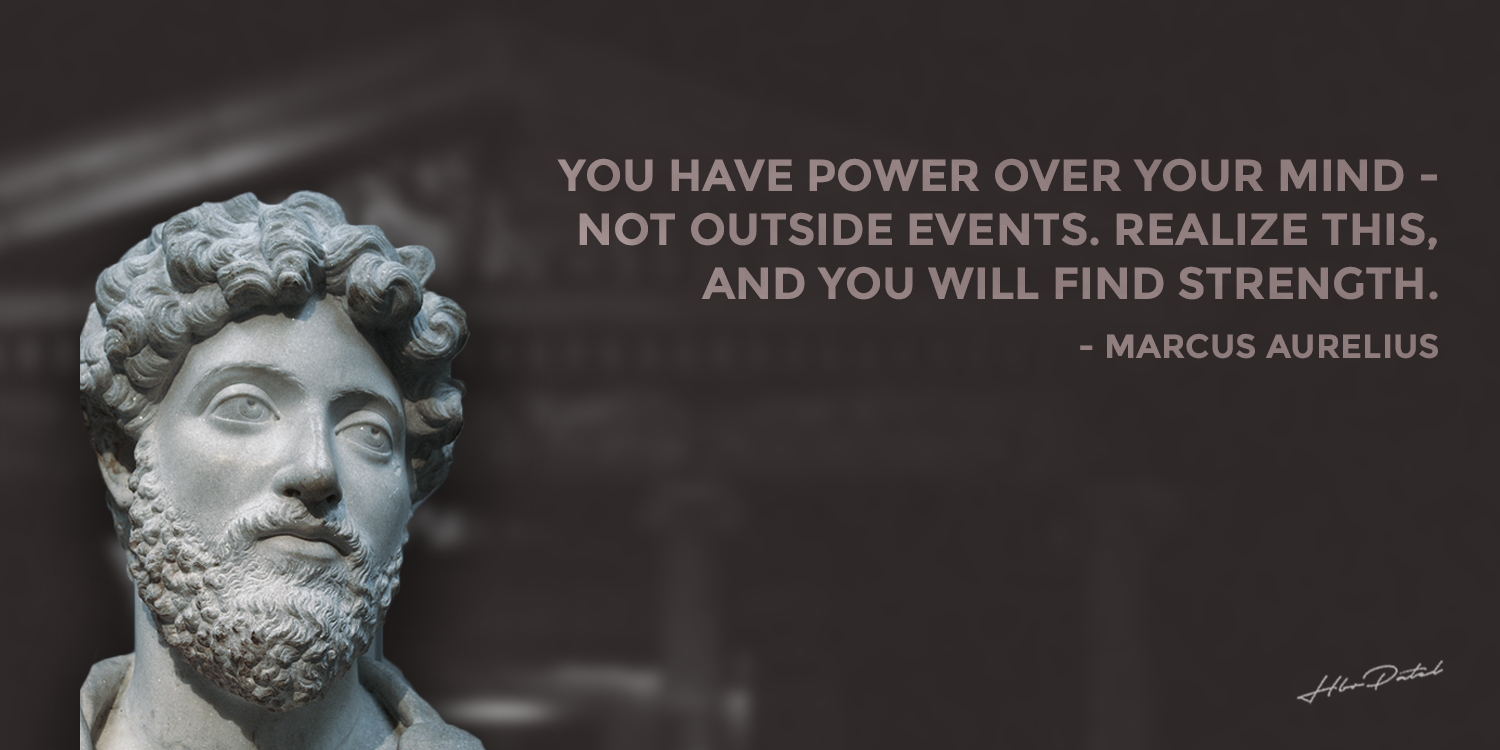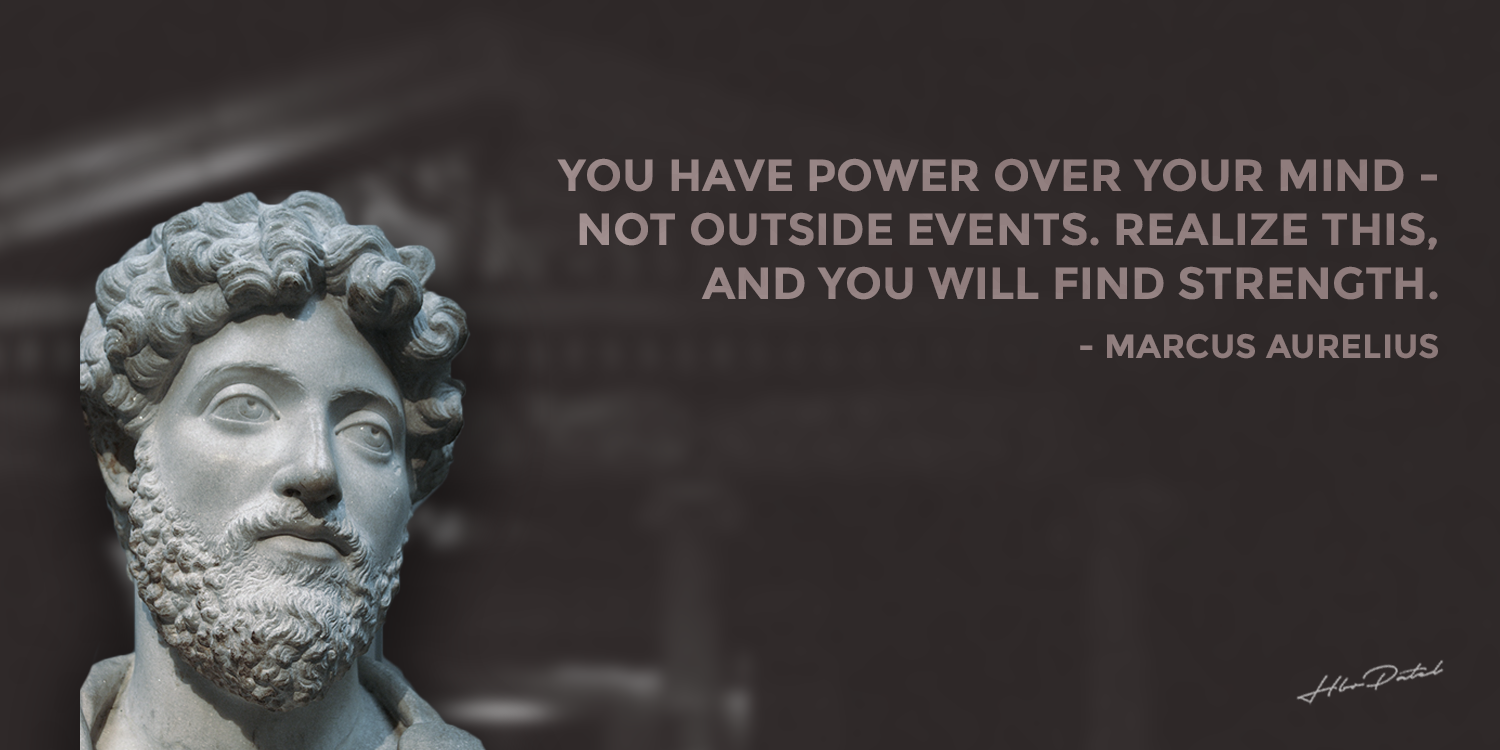You have power over your mind — not outside events. Realize this, and you will find strength. — Marcus Aurelius

In our life, we encounter multiple events. Sometimes those events bring out the best in us and sometimes the worst from us.
How do we feel when a driver cuts you off in traffic without any second thought?
How do we feel whenever someone criticizes our work?
How do we feel whenever someone insults us for no reason?
The thought of facing these type of events might lessen our inner joy. But it remains a fact that we have conditioned our mind to feel a certain way when we face certain events.
We all experience events in our day to day life that agitates us. Our inner-self becomes a victim of those events. We automate our response to the events that surround us. It is like life goes in auto-mode.
Our responses are evoked by the surface value of the events. We guide our thought process, our mood & our action based upon the initial appearances of the event surrounding us.
We fail to ponder deeply about its real value, the reason behind its occurrence & its importance in the distant future. We are so eager to react, due to primal impulses, that we fail to weigh in all the aspects.
Either we let our emotions dictate our actions or we hide inside our shield to avoid facing it & sulk. Everyone has a conditioned response, reinforced with years of implementation, to a perceived value or the first impressions of any particular events happening around us.
But when we ponder on the event with a conscious effort, when we question the event & its significance, we can easily remain unstirred by those external events. Easier said than done but it would make an impact on our life.
Marcus Aurelius writes in Meditations Book 5.26:
The mind is the ruler of the soul. It should remain unstirred by agitations of the flesh — gentle and violent ones alike. Not mingling with them, but fencing itself off and keeping those feelings in their place. When they make their way into your thoughts, through the sympathetic link between mind and body, don’t try to resist the sensation. The sensation is natural. But don’t let the mind start in with judgments, calling it “good” or “bad.”
When we try to judge the event based on the initial appearances, we evoke the response that is not fruitful.
The point is not to resist the feelings instigated by our primal impulse but not to ponder on that by holding on to it for a long time to ruin your inner peace.
You will feel angry due to your primal impulse when that driver cut you off. But to curse that driver after that is a choice that you make without judging the event properly. This will disturb your inner peace.
You will be disheartened due to your primal impulse when someone criticizes your work. But to badmouth that person behind his/her back after that is a choice that you make without judging the event properly. This will disturb your inner peace.
You will be frustrated due to your primal impulse when someone insults you for no reason. But to curse back to that person is a choice that you make without judging the event properly. This will disturb your inner peace.
The events happen in everyone’s life, but not all of them react to them in the same way. Our reaction to the events surrounding us, define us.
Seneca describes this beautifully in his Book On Anger, 2.4:
We are not able by means of reason to escape from that first impression on the mind, any more than we can escape from those things which we have mentioned as occurring to the body: we cannot prevent other people’s yawns temping us to yawn: we cannot help winking when fingers are suddenly darted at our eyes. The reason is unable to overcome these habits, which perhaps might be weakened by practice and constant watchfulness: they differ from an emotion that is brought into existence and brought to an end by a deliberate mental act.
Practice Constant Watchfulness. Practice it till you master it.
You will fill the emotions triggered by primal impulse as an initial response but do not let that initial response be your final response.
Induce watchfulness in between.
Try to look at events beyond their surface value and you will master the technique of remaining unstirred by the External Events.


